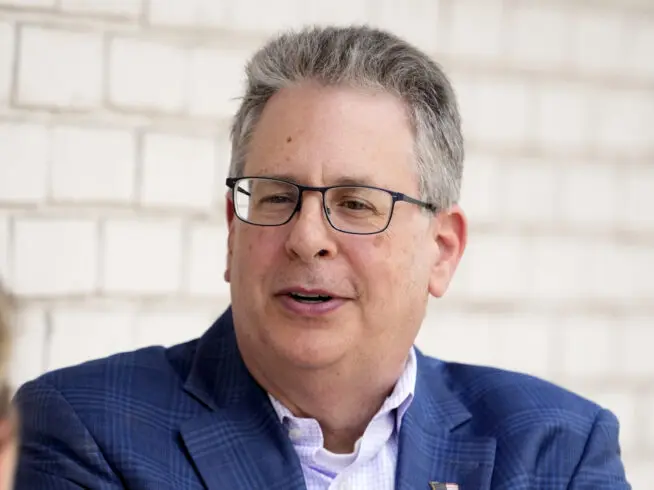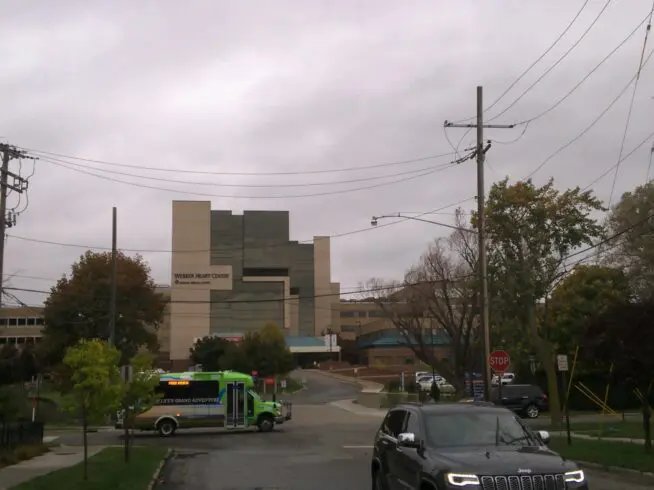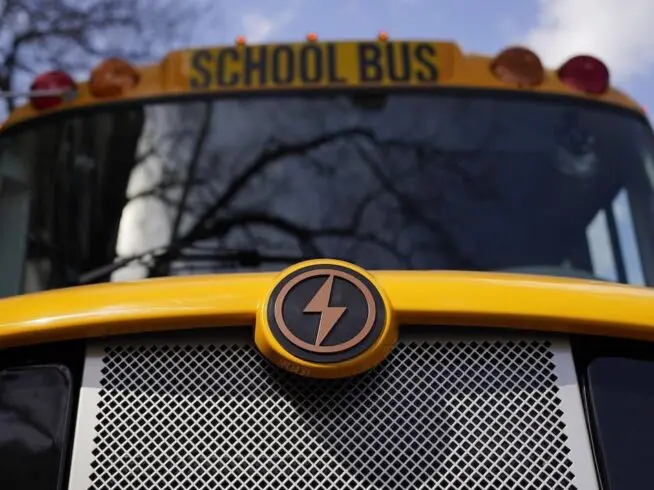Ann Arbor Public Schools is moving forward with $20.4 million in budget cuts
The Ann Arbor Public Schools Board of Education recently approved a plan that would eliminate 141 staff positions and cut several school programs.

The Ann Arbor Public Schools Board of Education is causing outrage among the district’s teachers, students and parents with its recent decision to eliminate 141 staff positions, including 94 teachers, and several school programs in order to improve the district’s dire financial situation.
Fred Klein, president of the Ann Arbor Education Association, the union that represents AAPS teachers, said that fewer staff would mean larger classes, more work for teachers, and less individual attention they will be able to provide to students.
He said the teachers union feels like it has gone unheard during years of what he called district leaders’ financial mismanagement.
“The morale has been pretty low in Ann Arbor, and this has plunged it to an all-time low,” Klein, who taught in the district for 28 years, told the Michigan Independent.
The board passed the proposal to reduce the district’s upcoming school year budget by $20.4 million and make the aforementioned cuts in a 6-1 vote at its May 20 meeting, after almost three hours of public comment from frustrated faculty, parents and students.
Superintendent Jazz Parks, who was chosen to lead the district earlier this year after serving on an interim basis since October, presented the board with the budget recommendations in May as a solution to the district’s financial woes. Marios Demetriou, the district’s former financial director, whom Parks brought in to assess the district’s finances, notified the board two months prior that the district was facing a $25 million shortfall due to a loss of over 1,100 students and an increase of about 50 employees over the previous five years, as well as recent raises for teachers and staff.
The state’s treasury department was prompted to step in under Michigan’s “early warning” law, legislation enacted in 2015 that mandates the circumstances under which the department will take action if it detects a school district is in financial distress. After the district’s fund balance dropped below 5% of its revenue last year, it requested that the district submit an action plan for building up its financial reserves.
Klein said union leaders had warned the district about the possibility of this situation for years. About 100-250 teachers resign or retire in the district every year, which would have given AAPS the opportunity to reduce their staffing numbers without layoffs, but school district leaders hired replacements, he said.
“Our mission was to have them not replace everybody and get our numbers down to a sustainable level so that we could have step advancements on our salary schedule and raises, cost-of-living increases, increases towards our health care premiums,” Klein said. “We wanted to do that for our members, and we wanted to avoid getting to the point where we are today with layoffs.”
Parks has maintained that AAPS will continue to prioritize the well-being of students and staff while schools undergo this transition.
Kristen McGlaston has three children who are students at Abbot Elementary in northwest Ann Arbor. She said her son, who will be entering fifth grade next school year, was upset to hear that his Spanish class would be cut.
“He said that was his favorite class and he’s really disappointed,” McGlaston said. “He was like, ‘Can we start a petition? Can we sign a letter? Can we talk to somebody?’”
McGlaston called the district’s decision to lay off its behavior interventionists horrifying. She said the need for these specialists is especially apparent at the elementary level because students of that age group missed critical years of social and emotional learning during the COVID-19 pandemic.
“The behavioral interventionists are critical for helping students navigate these issues in real time and helping to understand the root cause, as opposed to just disciplining. And the fact that they’ll be eliminated next year really has me concerned for these students that really need them the most,” McGlaston said.

The district negotiated a voluntary severance agreement with the Ann Arbor Education Association to allow staff to receive payments into a retirement plan if they send a notice of resignation or retirement by June 1.
Cleo Major, a father of two students attending Abbot Elementary, said he thinks the school district should raise money for the teachers who are going to be affected by the budget cuts.
“We have fundraisers all the time for different things, we need something for the teachers,” he said.
In addition to larger class sizes, Klein said teachers at the secondary level could potentially be forced to teach multiple grade levels or subject areas they’re unfamiliar with. At the elementary level, he fears the district will implement split classes by combining two grade levels.
Whatever changes the next school year brings, Klein feels the district should give teachers enough time to monitor how students are adjusting so they can plan accordingly.
“We have the best here in Ann Arbor, but protecting and preserving that planning time, giving grade-level and subject area teachers time to work together is important in maintaining a good, rigorous and thorough curriculum for the students, and our teachers will rise to the occasion,” Klein said.




